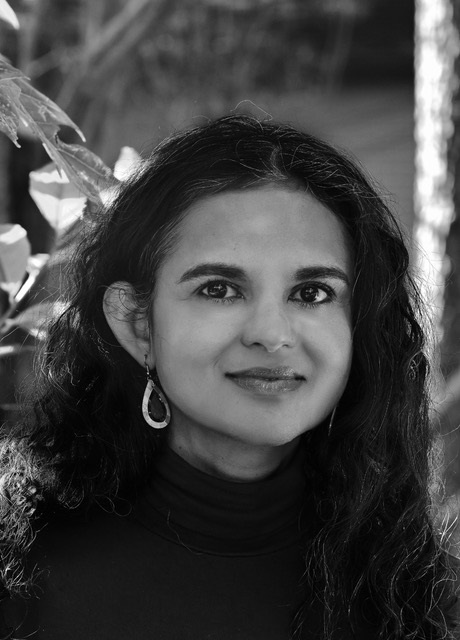 Gemini Wahhaj has fiction in or forthcoming in Granta, Third Coast, Chicago Quarterly Review, and other magazines. She has a Ph.D. in creative writing from the University of Houston, where she received the James A. Michener award for fiction (judged by Claudia Rankine), and the Cambor/Inprint fellowship. She was a staff writer for the Daily Star newspaper, and senior editor of Feminist Economics. She is associate professor of English at Lone Star College in Houston, Tex. Her first novel, The Children of This Madness (7.13 Books, December 5, 2023), is set in Houston and Bangladesh, and offers insight into the Bengali American experience.
Gemini Wahhaj has fiction in or forthcoming in Granta, Third Coast, Chicago Quarterly Review, and other magazines. She has a Ph.D. in creative writing from the University of Houston, where she received the James A. Michener award for fiction (judged by Claudia Rankine), and the Cambor/Inprint fellowship. She was a staff writer for the Daily Star newspaper, and senior editor of Feminist Economics. She is associate professor of English at Lone Star College in Houston, Tex. Her first novel, The Children of This Madness (7.13 Books, December 5, 2023), is set in Houston and Bangladesh, and offers insight into the Bengali American experience.
Handsell readers your book in 25 words or less:
Beena, a Bengali Ph.D. student in America, wants to stay back by getting married. It is a romantic novel, but the great romance is America.
On your nightstand now:
Sita in Exile by Rashi Rohatgi, about the discontents of an immigrant; Direct Sunlight by Christine Sneed, stories of young innocence on the brink of disaster; Bengal Hound by Rahad Abir, about Bengal in the throes of revolution; and The Wretched of the Earth by Frantz Fanon, about the dehumanizing effects of colonization. On Libby: Beautiful World, Where Are You by Sally Rooney, about a set of young friends as they try to respond to and live humanly in a capitalist world. And on Audible, Wolf Hall by Hilary Mantel, a historical novel about Thomas Cromwell, who is put in grave danger during the shifting political climate of Henry VIII's bid to divorce his Catholic wife and marry Anne Boleyn.
Favorite book when you were a child:
I loved Jane Eyre. I thought I was Jane Eyre and that the book was speaking to me. I read and reread the book and felt every emotion in my bones. It was only later, studying English literature, that I realized the imperialist overtones of the book, ending with St. John's missionary activities in India.
Your top five authors:
Kazuo Ishiguro, Aravind Adiga, Mavis Gallant, Daniyal Mueenuddin, and Amitav Ghosh. All of them use spare, precise language with an unwavering eye, straining to describe what is or what was.
Book you've faked reading:
Moby-Dick by Herman Melville. I love this book. You can pick it up anywhere and get lost in any chapter. But we had to read it for class, and I read it fast. We were all grumbling that it should never have been recovered from the canon, but it is a phenomenal book.
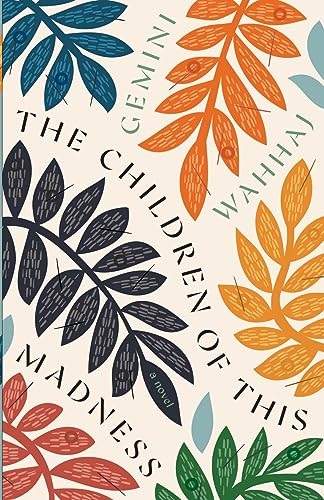 Book you're an evangelist for:
Book you're an evangelist for:
Mavis Gallant's Varieties of Exile, about English-speaking Canadians in Montreal, which I will casually mention to people when they are discussing what to read next. The language is precise and clear, describing ordinary people of another time, often poor, struggling, or befuddled by the tragedies of their lives.
Book you've bought for the cover:
Jennifer Maritza McCauley's When Trying to Return Home has an absolutely stunning cover. I was at a reading for another author where McCauley was also reading. I bought it on impulse, because of the deep colors that are both beautiful and painful, red and orange faces floating in a sea of purplish blue. The stories about Black American and Afro Puerto Rican characters trying to survive and keep their humanity in America are just stunning. Every time I reread a story, I sit with it for hours.
Book you hid from your parents:
All through high school, I hid story books inside my physics textbook. I won't mention the Mills & Boon romances, but I remember hiding Lynne Reid Banks's My Darling Villain, about an upper-middle class English teenager's first love, with a working-class boy. When my father discovered it in my physics textbook, I made him read it too. But my parents didn't really care what I read. They never censored me. I should probably mention all the Jackie Collins novels I read, which were actually very good and informative.
Book that changed your life:
Fiction. Aldous Huxley's Brave New World¸ but only when I reread it as an adult. People simply parrot what they are fed through media. It's supposed to be dystopian, but it mirrors reality pretty closely.
Favorite line from a book:
From the title story of Chaitali Sen's collection A New Race of Men from Heaven, narrated by a young woman whose Indian father gave up his homeland for his English wife, "When I showed them pictures of their grandfather, we could see what was always there, the greatness of the effort, the constant clenching of his heart."
Five books you'll never part with:
The Little Bookroom by Eleanor Farjeon, a book of fairy tales that root for the underdog; Orientalism by Edward Said, about the othering of the global south in Western narratives; The Gathering by Anne Enright, about an Irish family's loss and grief; Edward P. Jones's Lost in the City, especially "A New Man," a story about why we tell stories; and Louise Erdrich's story collection Love Medicine, about the dispossessed but still enduring indigenous people, told with such grace.
Book you most want to read again for the first time:
I often reread Never Let Me Go by Kazuo Ishiguro, about human clones created solely to be organ donors. It feels like I'm reading for the first time. The language is so romantic and painful. I am transported to another world again.
Book you would recommend from another language:
Sunil Gangopadhyay wrote many phenomenal novels in Bengali, ranging from contemporary stories offering social critique to historical fiction. I recommend his historical novel Shei Shomoi (Those Days), about India under British occupation, also a story of Indian renaissance, which is now available in translation.
 In October, bookstore sales dropped 3.7%, to $565 million, compared to October 2022, according to preliminary Census Bureau estimates, the sixth monthly loss for bookstore sales this year. By comparison to pre-pandemic times, bookstore sales in October were down 11.3% from October 2019. For the year to date, bookstore sales are even, at $6.6 billion, compared to the first 10 months of 2022.
In October, bookstore sales dropped 3.7%, to $565 million, compared to October 2022, according to preliminary Census Bureau estimates, the sixth monthly loss for bookstore sales this year. By comparison to pre-pandemic times, bookstore sales in October were down 11.3% from October 2019. For the year to date, bookstore sales are even, at $6.6 billion, compared to the first 10 months of 2022.




IPC.0204.S3.INDIEPRESSMONTHCONTEST.gif)




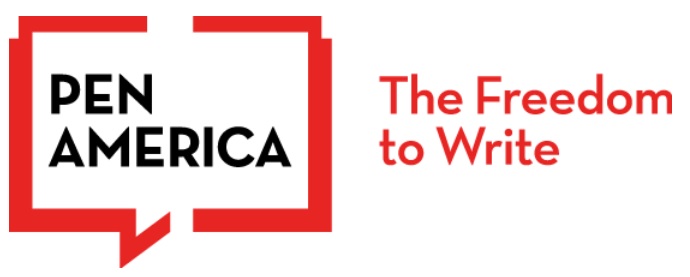 Spineless Shelves
Spineless Shelves
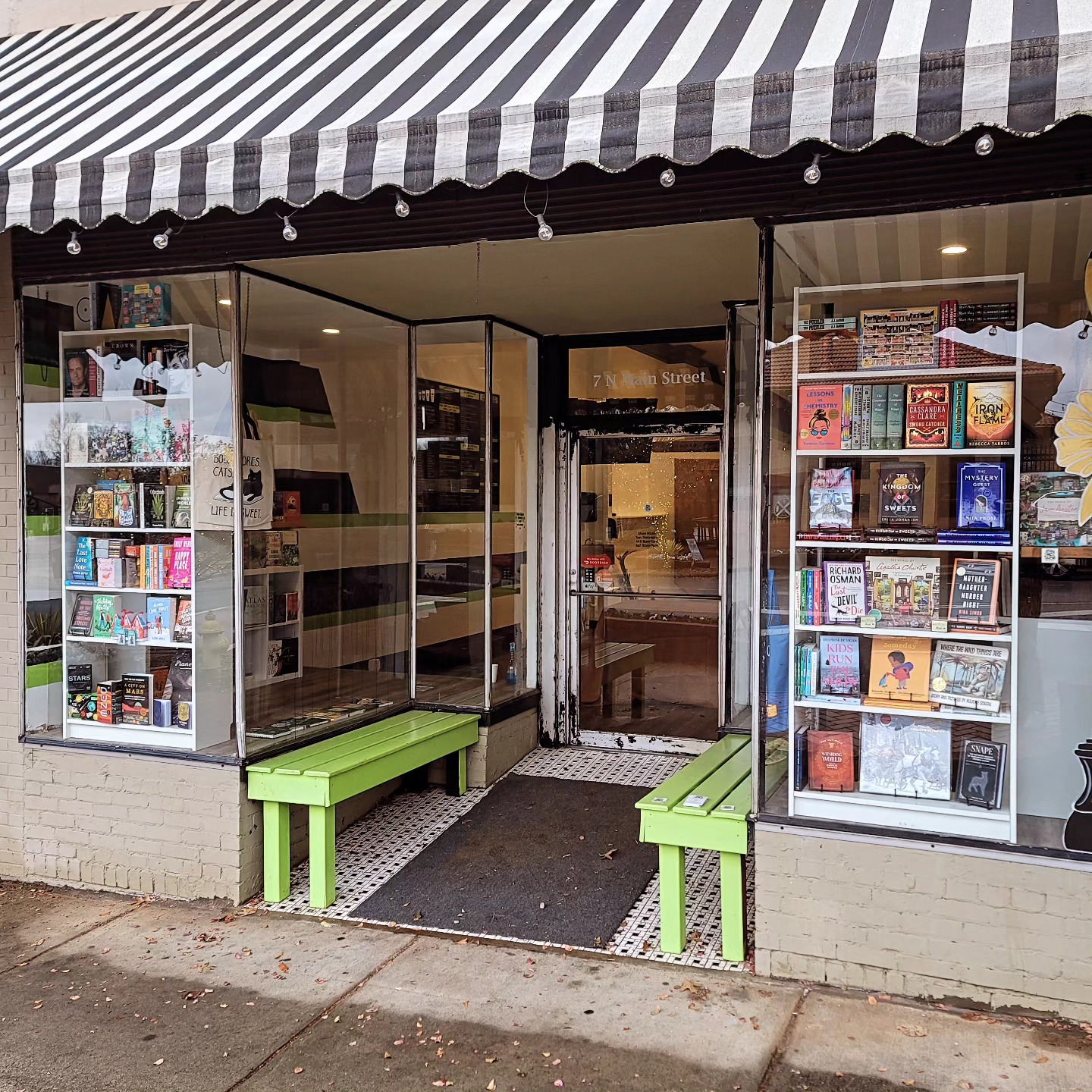 Belmont Bookshop
Belmont Bookshop
IPC.0211.T4.INDIEPRESSMONTH.gif)
 Bookstore owner Sari Harlow is acquiring Story Coffeehouse, which is located in the same building as Verb, from its owners Bethany Davis and Lindsey Spencer. Story Coffeehouse will close permanently on December 22, and Verb will move into the coffee shop's space; the transition is expected to be complete by the end of January 2024. Harlow will retain all Story employees who wish to remain, and no one will be laid off due to the transition.
Bookstore owner Sari Harlow is acquiring Story Coffeehouse, which is located in the same building as Verb, from its owners Bethany Davis and Lindsey Spencer. Story Coffeehouse will close permanently on December 22, and Verb will move into the coffee shop's space; the transition is expected to be complete by the end of January 2024. Harlow will retain all Story employees who wish to remain, and no one will be laid off due to the transition.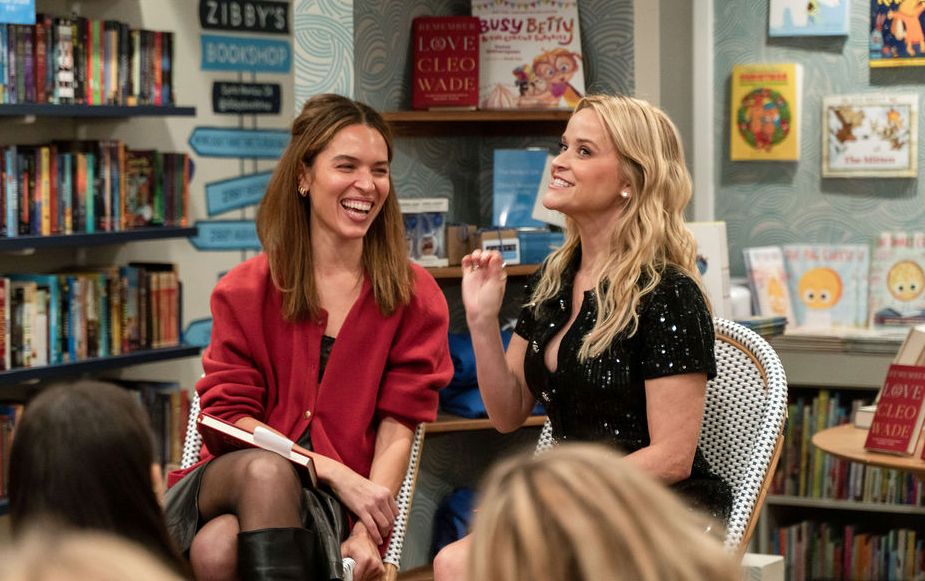
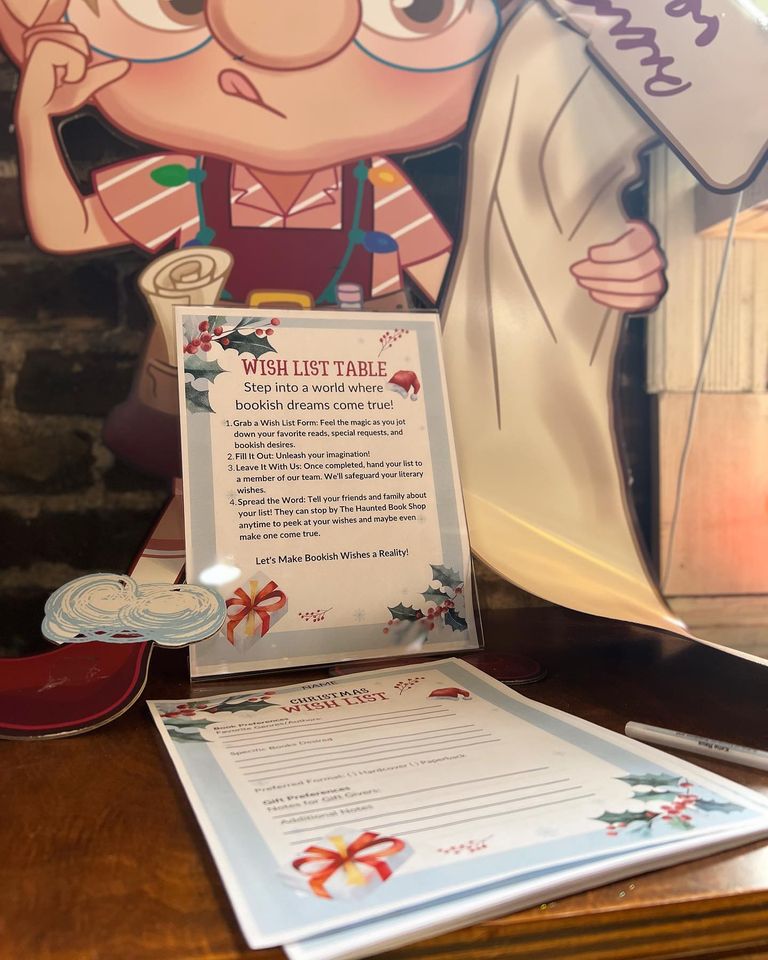 "Want to make your bookish wishes a holiday reality?" the
"Want to make your bookish wishes a holiday reality?" the 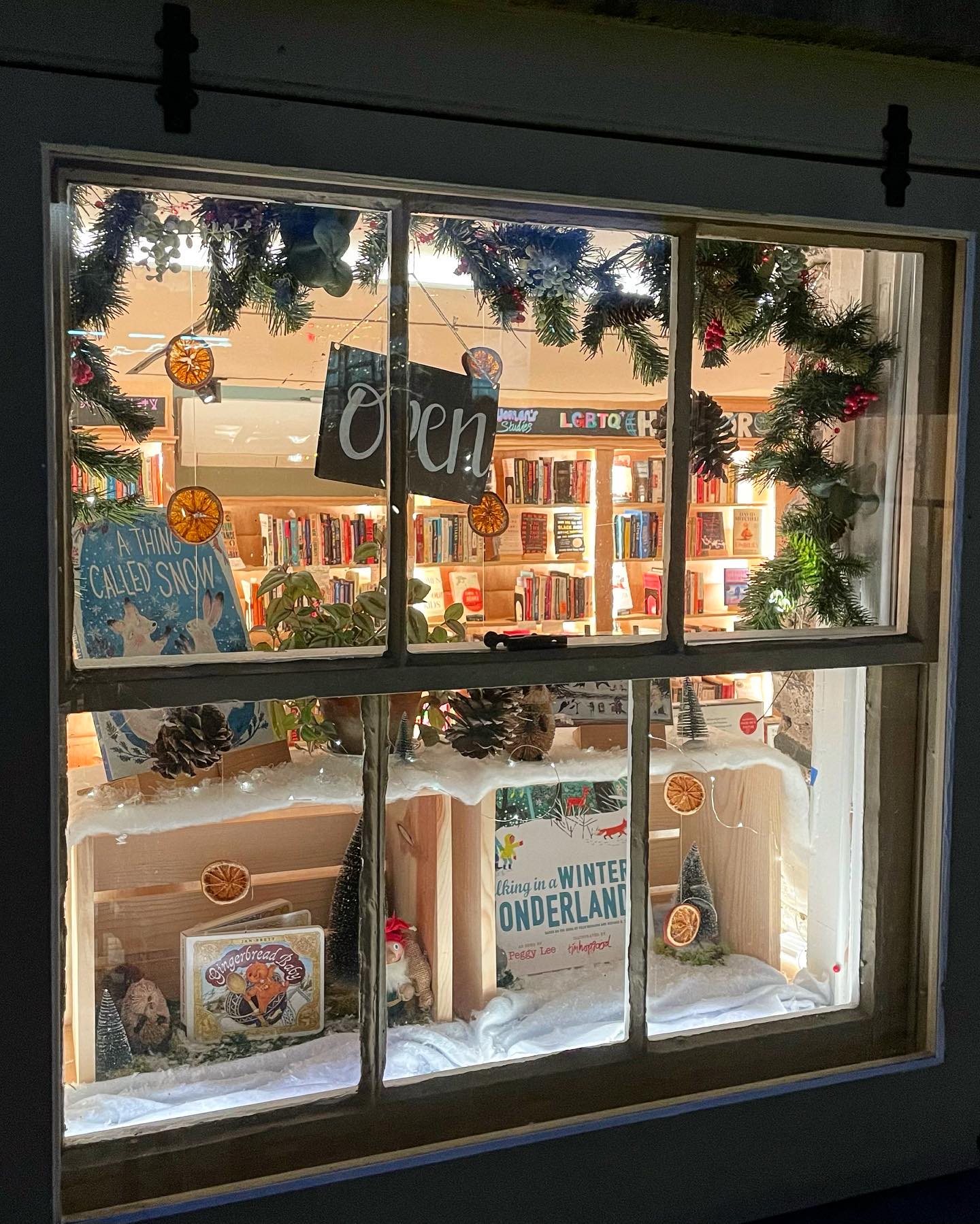 Posted on Facebook by
Posted on Facebook by 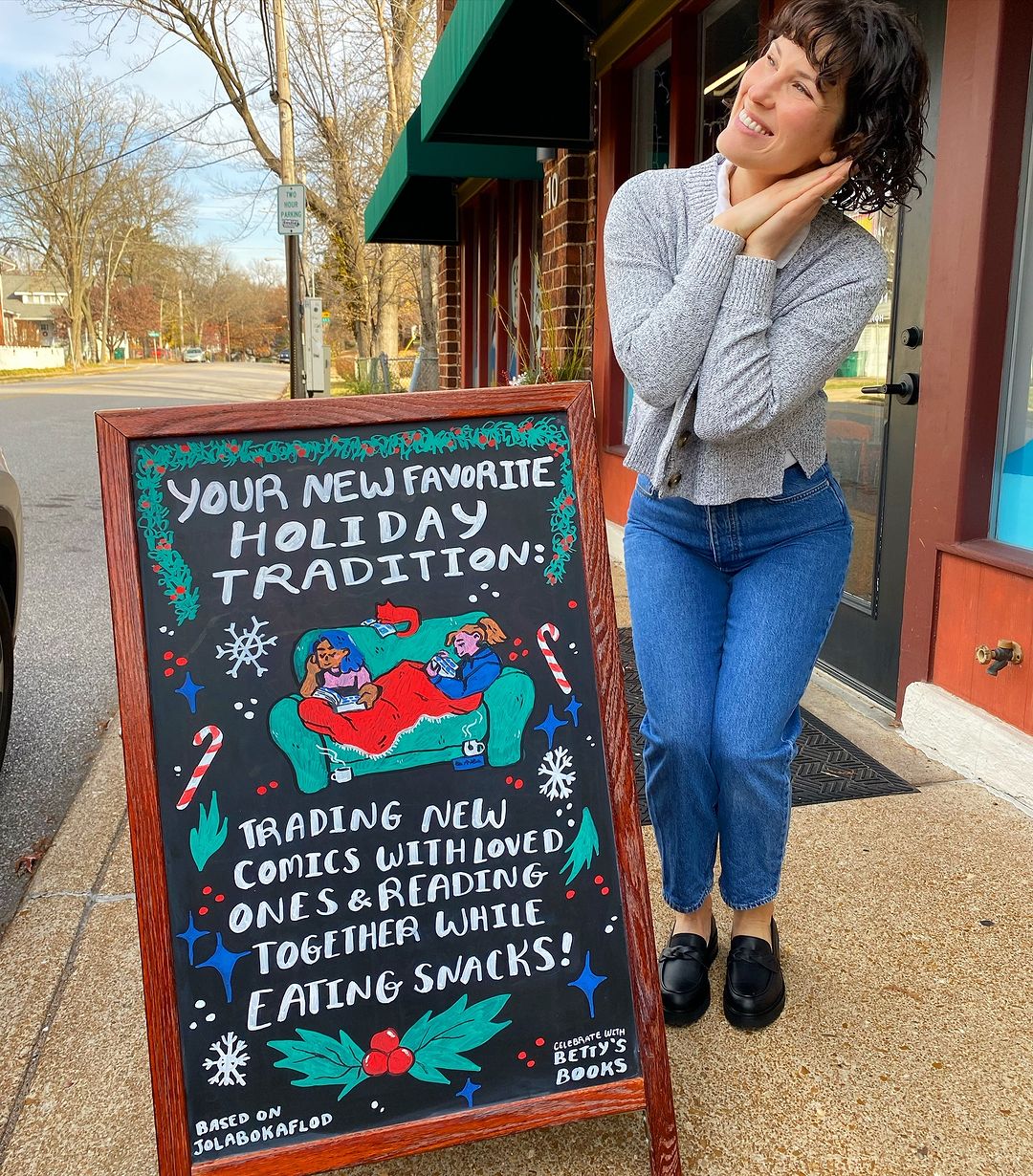 "
"
 Book you're an evangelist for:
Book you're an evangelist for: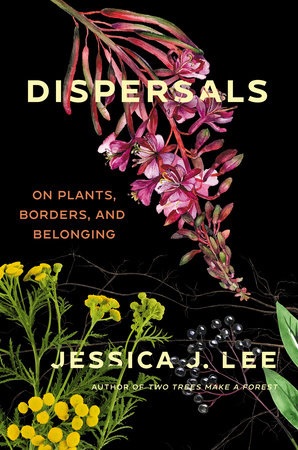 "Plants illuminate facets of life and our world," writes
"Plants illuminate facets of life and our world," writes 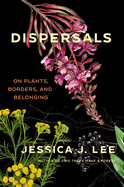
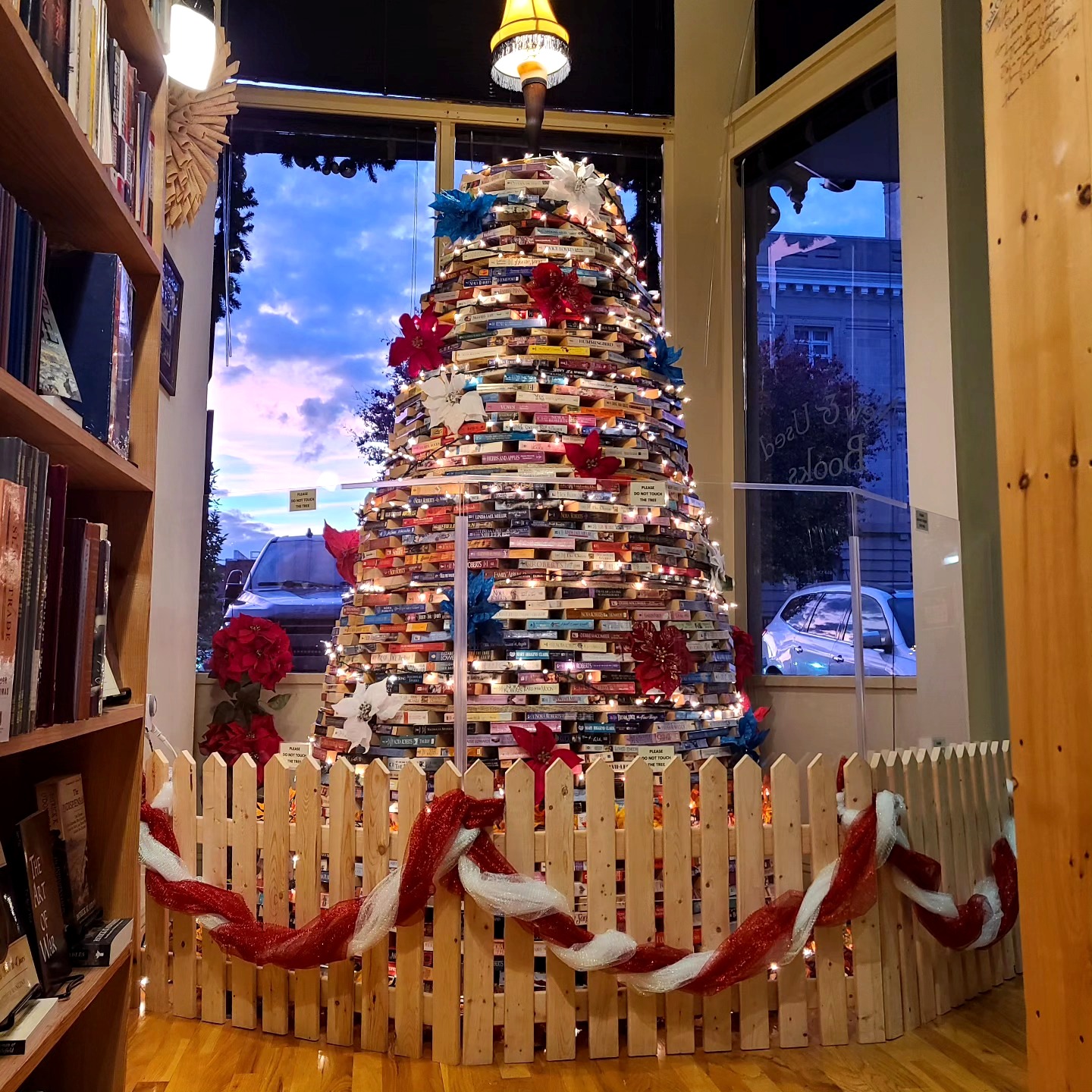
 But first, let's check in with the "real" world's Christmas retail spirit.
But first, let's check in with the "real" world's Christmas retail spirit. 
 The Delines, a group formed a few years ago by musician and author Willy Vlautin, premiered the song last week. It will probably not be on many retail playlists.
The Delines, a group formed a few years ago by musician and author Willy Vlautin, premiered the song last week. It will probably not be on many retail playlists.